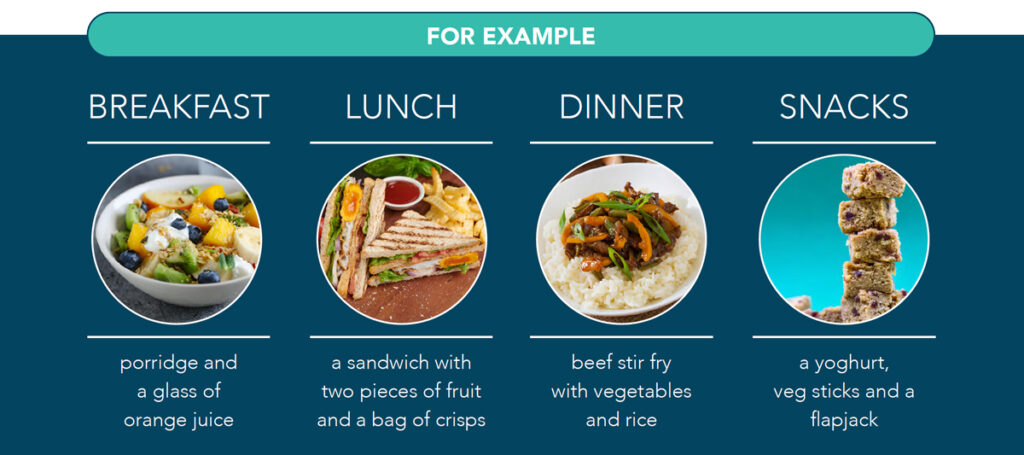Low Carb and Very Low Carb Keto Diets
How do these differ from a standard diet?
Both low carb and ketogenic diets require a reduction in carbohydrate intake from our standard diet, however the degree of carbohydrate restriction will vary. As people reduce their carbohydrate intake, many describe themselves as following a ketogenic diet, but this is not technically correct, and can in fact be confusing! So let’s not get hung up on labels, instead lets focus on identifying the right level of carbohydrate reduction for you.
Standard Diet
Think of this as a typical diet, it contains approximately 250g of carbohydrate per day from a range of sugars, starches, fruit and vegetables. It’s surprisingly easy to consume this amount of carbohydrate! For example, a slice of bread or an apple contains about 20g of carbohydrate each. On a regular day, we can easily consume 250g or more of carbohydrate. That’s before we account for any additional carbohydrates from sweet treats, savoury snacks, milk in tea or coffee, soft drinks and alcohol.

Low Carbohydrate Diet
These typically contain between 50g to 130g of carbohydrate per day so we need to at least half our usual carbohydrate intake to move towards a lower carb diet. This can be achieved by limiting the amount of carbohydrates consumed, especially simple and refined carbs found in sugary foods and drinks, pasta, rice, bread, cereals and fruit. Normal quantities of protein should be consumed and healthy fats in moderation.
Very Low Carbohydrate Keto Diet
These typically contain 20-50g of carbohydrate per day so require a further reduction in dietary carbohydrate intake. Normal quantities of protein should be consumed and fat intake increased (ideally healthy fats) to support the potential for production of ketones. Going low carb helps regulate blood sugar but it doesn’t typically lead to ketosis like a very low carb/ketogenic diet can.
Benefits of Low and Very Low Carb Keto Diets
Evidence shows that lower carb diets can be safe and effective for people with overweight, obesity and/or type 2 diabetes. Following a lower carb diet can help you to:
- lose weight
- stabilise blood glucose (sugar) levels
- lower blood insulin levels
- reduce triglycerides (dangerous fats) and improve HDL (good) cholesterol levels
Interest is growing fast in the ‘food-mood link’ and how diet may influence our mental health and general wellbeing. The role of low carb diets is being investigated to improve mood, brain fog, anxiety and depression with many positive reports from those using a low carb approach.
Which Diet is Right for Me?
It is not necessary or indeed safe for everyone to follow a ketogenic diet to see improvement in their health or symptoms. Lower carb diets can achieve excellent results with greater flexibility and less restriction in daily habits and eating compared to keto diets.

Can I self refer to The Keto Dietitian?
Yes you can. These diets carry less risk of side effects than medical ketogenic diet therapies and hence requires less medical monitoring. You can therefore book an appointment in our low carb clinic below without the need of a referral from your doctor.
Low Carbohydrate and Keto Clinic
Our low carb and ketogenic clinic supports adults to undertake low carb and keto diets for weight loss, type 2 diabetes, mood, and general well-being.
Safety Precautions for those taking insulin, medications to lower blood glucose or medications for mental health issues an disorders
Please speak with your GP or medical team BEFORE reducing your carbohydrate intake as your insulin or medications may need to be adjusted.



